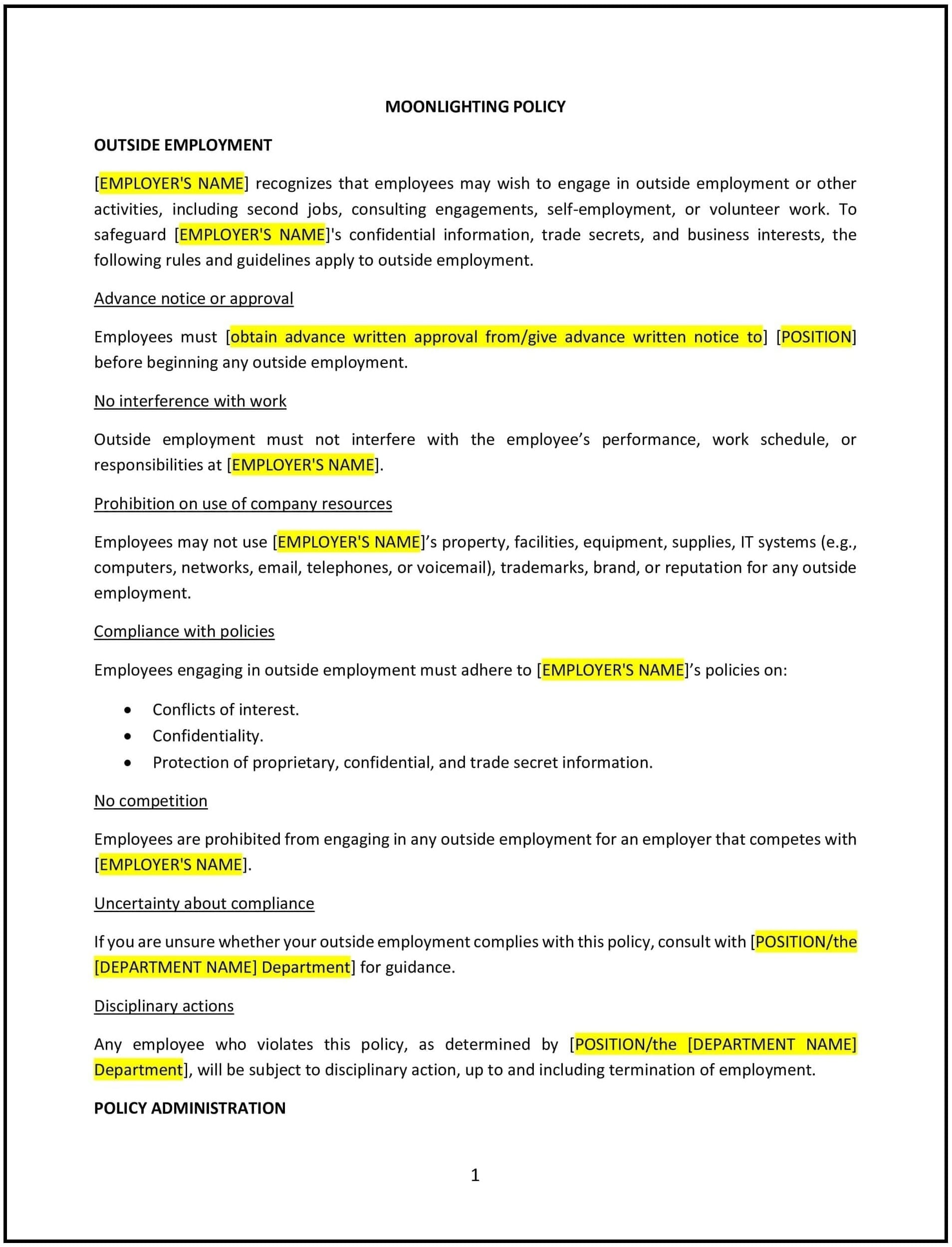Got contracts to review? While you're here for policies, let Cobrief make contract review effortless—start your free review now.

Customize this template for free
Moonlighting policy (New Jersey)
A moonlighting policy helps New Jersey businesses set expectations for employees engaging in secondary employment or freelance work outside their primary job. This policy outlines guidelines for disclosing outside work, avoiding conflicts of interest, and ensuring that external employment does not interfere with job performance. It also sets standards for protecting company resources, confidential information, and business reputation.
By adopting this policy, businesses in New Jersey can maintain workforce productivity, reduce conflicts of interest, and provide employees with clear guidance on outside employment.
How to use this moonlighting policy (New Jersey)
- Define moonlighting restrictions: Clarify whether employees can engage in outside employment and any conditions for approval.
- Establish disclosure requirements: Require employees to notify management if outside work may create a potential conflict of interest.
- Set expectations for work performance: Reinforce that external employment should not interfere with job duties, productivity, or attendance.
- Prohibit conflicts of interest: Restrict employees from working for competitors, vendors, or clients that could impact business operations.
- Address company resource use: Prohibit employees from using company time, equipment, or proprietary information for outside work.
- Provide guidelines for professional conduct: Require employees to avoid actions that could damage the business’s reputation or create ethical concerns.
- Establish disciplinary measures: Outline consequences if an employee’s outside work negatively impacts their job performance or breaches company policy.
- Review and update: Regularly assess the policy to reflect business needs, industry changes, and New Jersey employment trends.
Benefits of using this moonlighting policy (New Jersey)
This policy provides several benefits for New Jersey businesses:
- Reduces conflicts of interest: Helps businesses manage potential competitive or ethical risks.
- Maintains employee productivity: Reinforces that primary job responsibilities take precedence over outside work.
- Protects company resources: Prevents misuse of business time, tools, or proprietary information.
- Enhances transparency: Encourages employees to disclose outside employment for review.
- Supports fair workplace practices: Ensures all employees understand expectations regarding secondary employment.
Tips for using this moonlighting policy (New Jersey)
- Communicate the policy clearly: Ensure employees understand moonlighting expectations and disclosure procedures.
- Train managers on identifying conflicts: Provide guidance on addressing potential conflicts of interest and performance issues.
- Encourage transparency: Create an open process for employees to discuss external work arrangements with management.
- Monitor performance and engagement: Track job performance to ensure external work does not affect productivity or workplace behavior.
- Review the policy regularly: Update the policy based on evolving business needs and New Jersey employment practices.